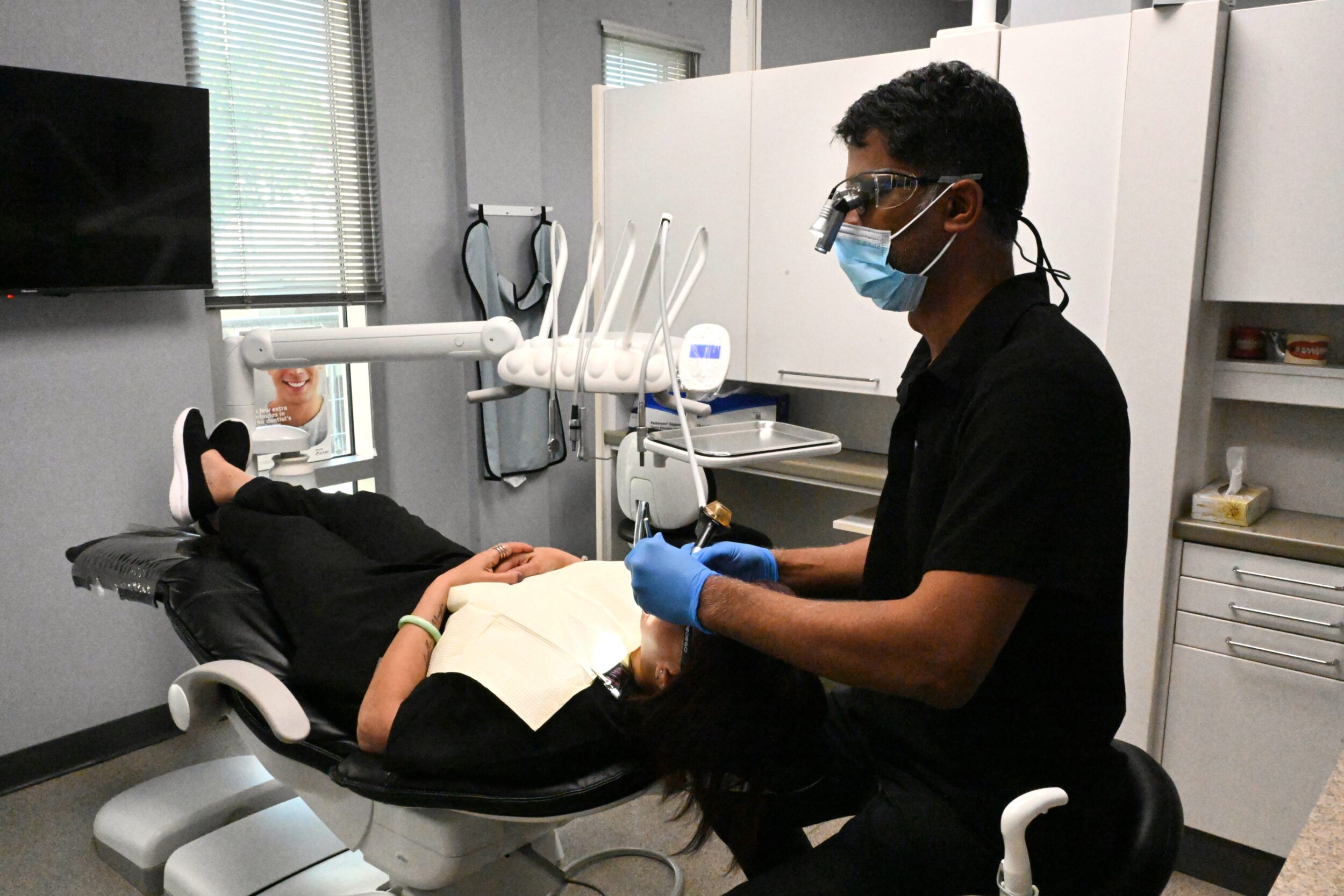Dentures Partial Dentures in calgary, AB
A denture is a removable dental appliance that is used to replace missing teeth and surrounding tissue in the mouth. This type of restoration is made to resemble your natural teeth as closely as possible and may even enhance your smile as well.
A denture can come in two types – a complete denture and a partial denture. A complete denture is used when all of the teeth are missing, while a partial denture is used when some natural teeth remain. The purpose of a partial denture is not only to fill in the spaces left by missing teeth, but also to prevent other teeth from shifting due to the missing teeth.

There are two types of complete dentures: the conventional and immediate types. Conventional dentures are made after the teeth have been removed and the gum tissue has healed (this usually takes four to six weeks). During this time, the patient will be without teeth for a period of time. The immediate dentures are prepared in advance and placed immediately following the extraction of the teeth, thus preventing the patient from being without teeth for a prolonged period of time. It will be necessary to make adjustments once the tissues have shrunk and healed.
The dentures are very durable and will last for many years, but they may require remaking, repair, or readjustment as a result of normal wear.
Reasons for dentures:
- Complete Denture – Loss of all teeth in an arch.
- Enhancing smiles and facial tissues.
- Improves chewing, speech, and digestion.
- Partial Denture – Loss of several teeth in an arch.
How do dentures work?
Dentures are usually obtained through several appointments over a period of several weeks. For creating your custom denture, highly accurate impressions (molds) and measurements are taken and used in order to create an exact fit. It may be necessary to schedule a few “try-in” appointments in order to ensure that the shape, color, and fit are correct. During the final appointment, your dentist will precisely adjust and place the finished denture, ensuring that it fits comfortably and naturally.
You may experience increased salivation, some soreness, and difficulty speaking and chewing at first, but this will subside once your muscles and tissues become accustomed to the new dentures.
You will receive instructions on how to care for your new dentures. In order to prolong the life of your new dentures, it is important that you clean them properly, maintain good oral hygiene, and go to the dentist on a regular basis.